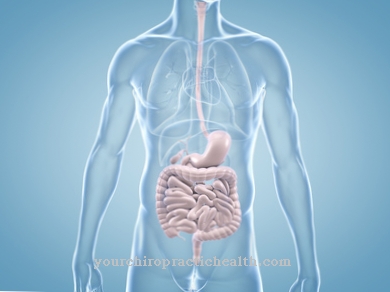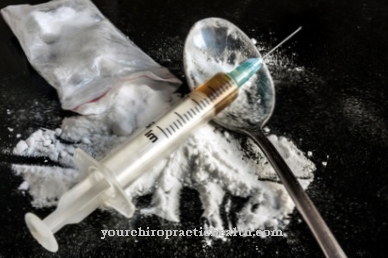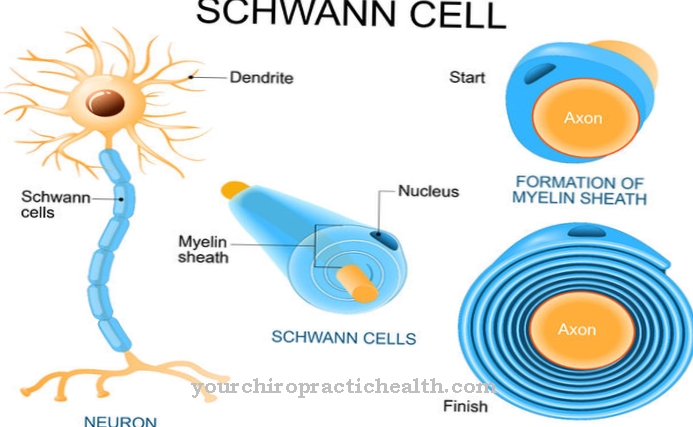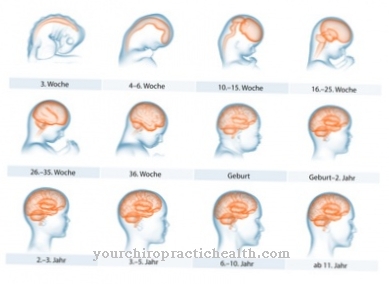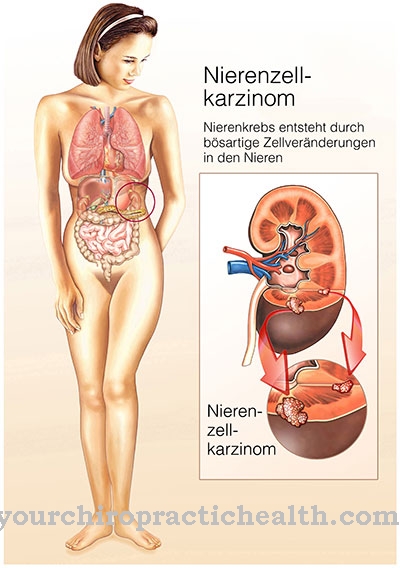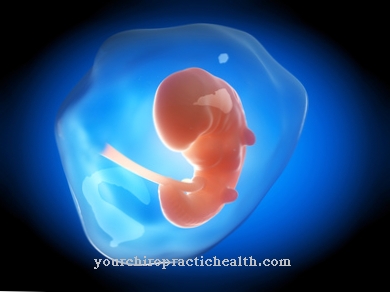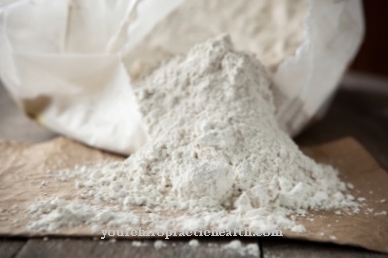The Gastric acid production takes place over the mucous membranes of the stomach. The acid is the most important secretion in the digestive process. It consists mainly of very dilute hydrochloric acid. The liquid, also known as gastric juice, has a more or less viscous consistency and is clear. In the normal state, the concentration of hydrochloric acid in the stomach is 0.5 to 1 percent. In addition, stomach acid is made up of mucus, the protein-splitting enzyme pepsin and mucoprotein, which is responsible for the absorption of vitamin B12. The so-called rennet also occurs, which supports the coagulation of milk protein.
What is gastric acid production?

When empty, stomach acid has a pH value of approximately 0. This increases to 2 to 4 when the stomach is full. The gastric juice is formed both between meals and during the nightly rest period. The intensity is highest around midnight and then decreases significantly until early morning.
The digestion or utilization of food by the stomach acid takes place by means of hydrolytic cleavage (hydrolysis), a reaction with water. The proteins in the stomach contents are converted into individual amino acids or chains from them.
In terms of cell biology, gastric acid consists of protons and chloride ions. The gastric mucosa is responsible for the production of chloride ions. The so-called parietal cells, which absorb the stimuli for the secretion of chloride ions, are embedded in their larger and smaller channels.
The epithelial cells of the lining of the stomach in turn prevent the gastric juice from breaking down the cell membranes and ultimately digesting them. That would amount to self-destruction of the stomach.
If the stomach acid gets into the esophagus, heartburn occurs. If this happens frequently or regularly, cellular changes in the covering tissue (epithelium) of the esophagus can be the result, which under certain circumstances can lead to cancer.
If too much stomach acid is produced, the stomach becomes acidic, which in addition to heartburn can also lead to a feeling of fullness and stabbing stomach pain. These side effects often occur with an acute inflammation of the stomach lining (gastritis).
Acidification can be prevented if less alcohol, nicotine and coffee are consumed. Food that is too fatty or too spicy often plays a negative role here. Last but not least, constant stress can upset the acid balance in the stomach. If these factors are taken into account and the symptoms persist, a doctor should find out the possible causes of the disease in the stomach, intestines or esophagus.
Function & task
About two liters of gastric juice are made available daily. Its production is significantly stimulated as soon as the food ingested has hit the gastric mucosa. Then the stomach will automatically expand immediately. The hydrochloric acid in gastric juice particularly attacks the proteins in food and breaks them down. At the same time, stomach acid fights bacteria and viruses in particular before they can cause diseases.
Most of the mucus contained in gastric acid is supplied by the surface cells of the gastric mucosa. It forms a thin, closed film that completely lines the inside of the stomach. This is how the stomach protects itself against hydrochloric acid.
The gastric acid production can be divided into three phases. First, the secretion of gastric juice is stimulated by thinking about food and its visual perception and smell. This is the so-called head phase, as it is initiated by stimulating the Xth cranial nerve (vagus nerve).
This is followed by the stomach phase, in which the stomach expands and is chemically irritated by proteins, spices, etc. Finally, there is the so-called intestinal phase, in the course of which gastric acid production is inhibited or blocked by hormonal influence, since the chyme has arrived in the duodenum.
The stomach acid prevents bacteria, germs and parasites from entering the intestines by killing almost anything that can harm the body. If not enough gastric juice is secreted, the food cannot be used properly. In particular, proteins, carbohydrates and fats are then only broken down insufficiently.
You can find your medication here
➔ Medication for heartburn and bloatingIllnesses & ailments
The consequences of a gastric acid deficiency are extremely diverse. Flatulence, diarrhea, or persistent constipation often occur. Heartburn can also make itself felt, even more often than with too much stomach acid.
At the same time, food intolerances develop, for example from green vegetables, lentils and nuts. Iron and vitamin deficiencies, skin diseases such as acne or eczema, and even asthma may develop. In many cases, the fingernails become brittle and brittle. Sudden hair loss can also be related to a lack of stomach acid.
Due to the incomplete breakdown of the food components, the body often also lacks calcium, copper, magnesium, manganese, selenium and zinc.
The protein deficiency as a result of insufficient food preparation can lead to severe blood anemia (anemia). In addition, damage to the nerve functions and the mucous membrane of the stomach is possible.
Sugar in food and beverages in particular reduces gastric acid production considerably. Reducing glucose intake is therefore always good for your health and wellbeing.
If too much stomach acid is suspected, the daily consumption of raw oatmeal helps. In such a case, the slightly diluted juice of freshly grated raw potatoes is also recommended. Pure juice of aloe vera, chamomile, peppermint and centaury (bitter herb) are also effective against acidification. Every good stomach drop can also have a beneficial effect on the regulation of gastric acid production. In this context, purely herbal products are particularly recommended.

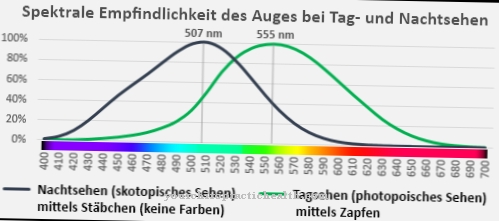

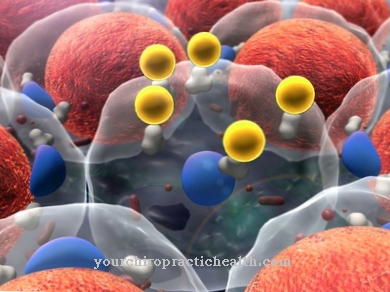





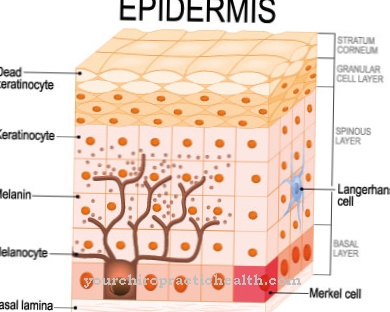
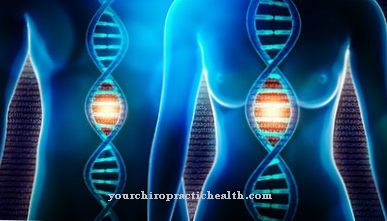
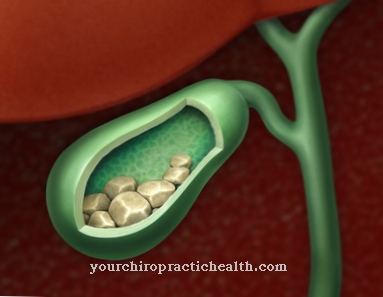
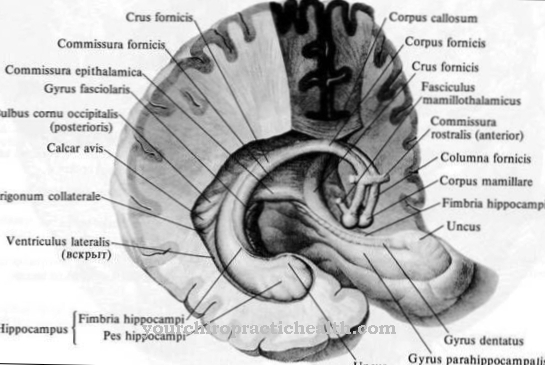

.jpg)
